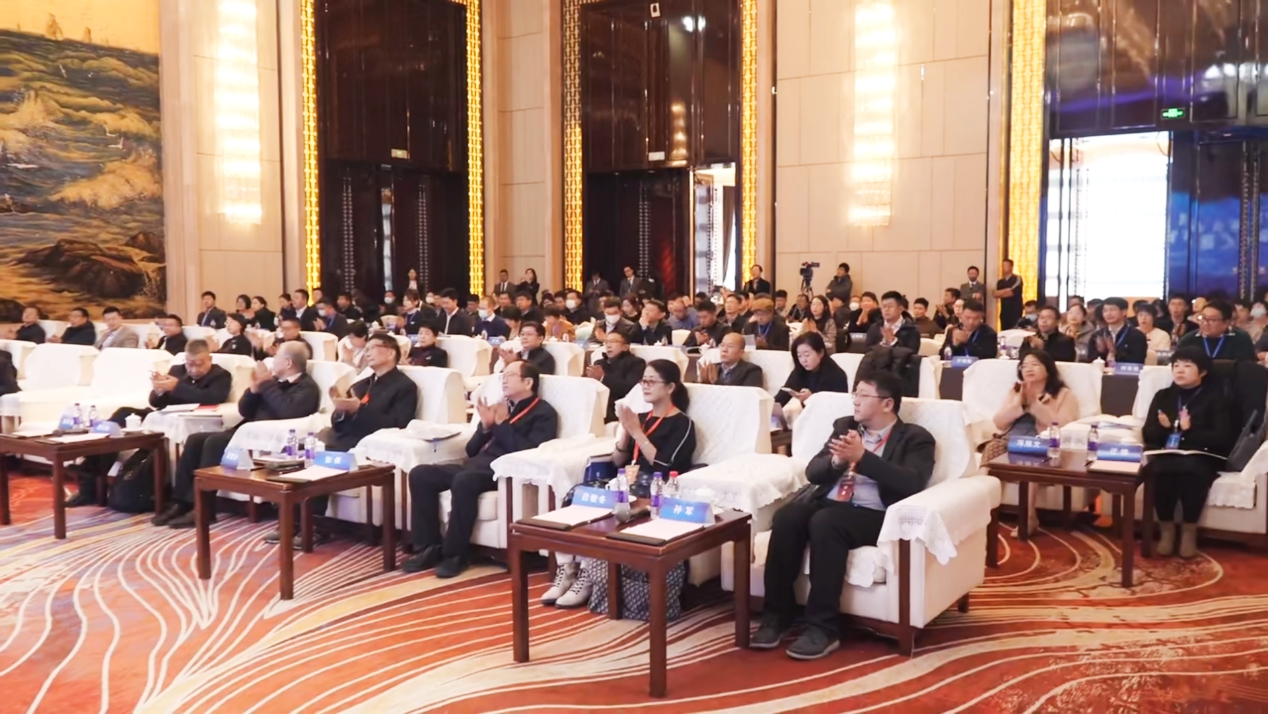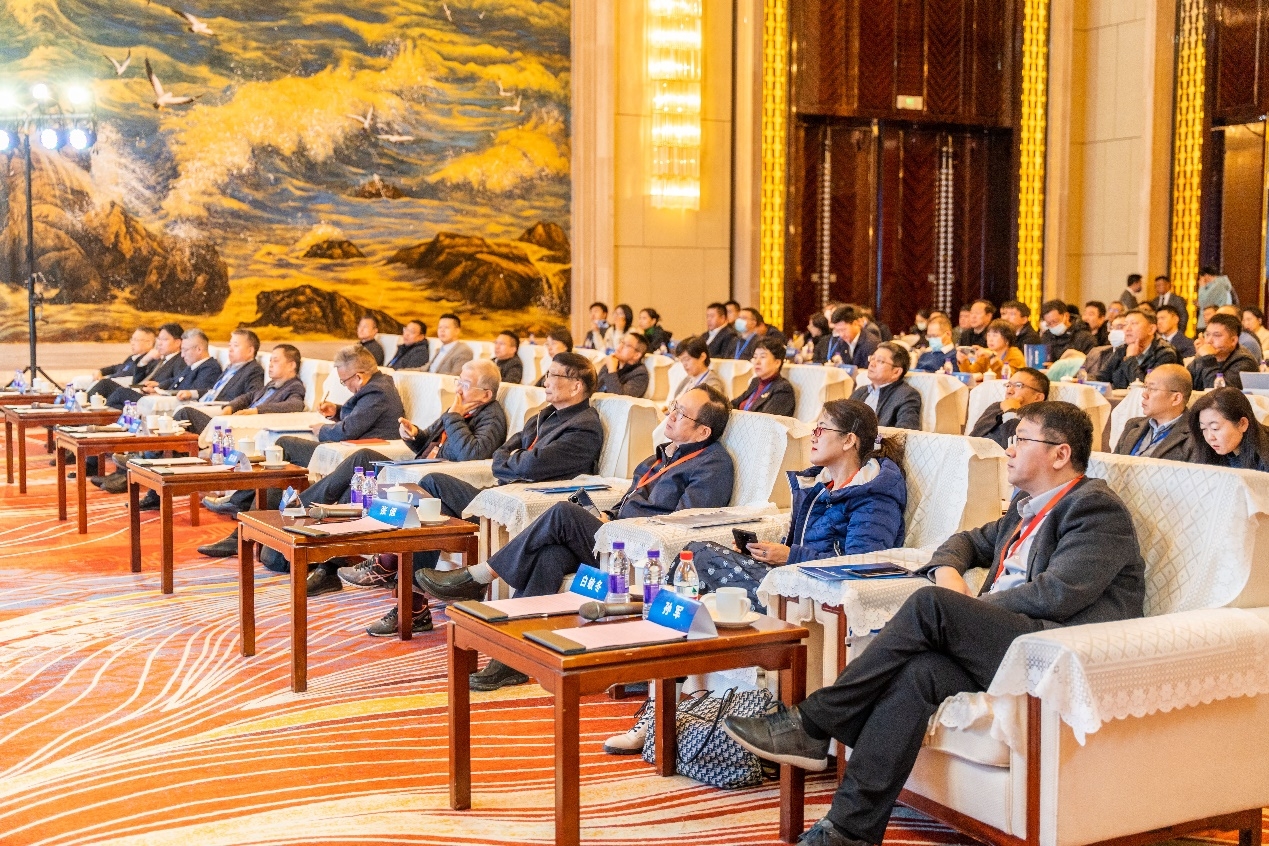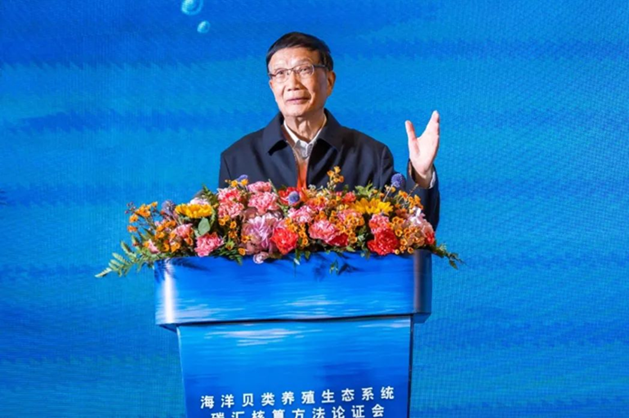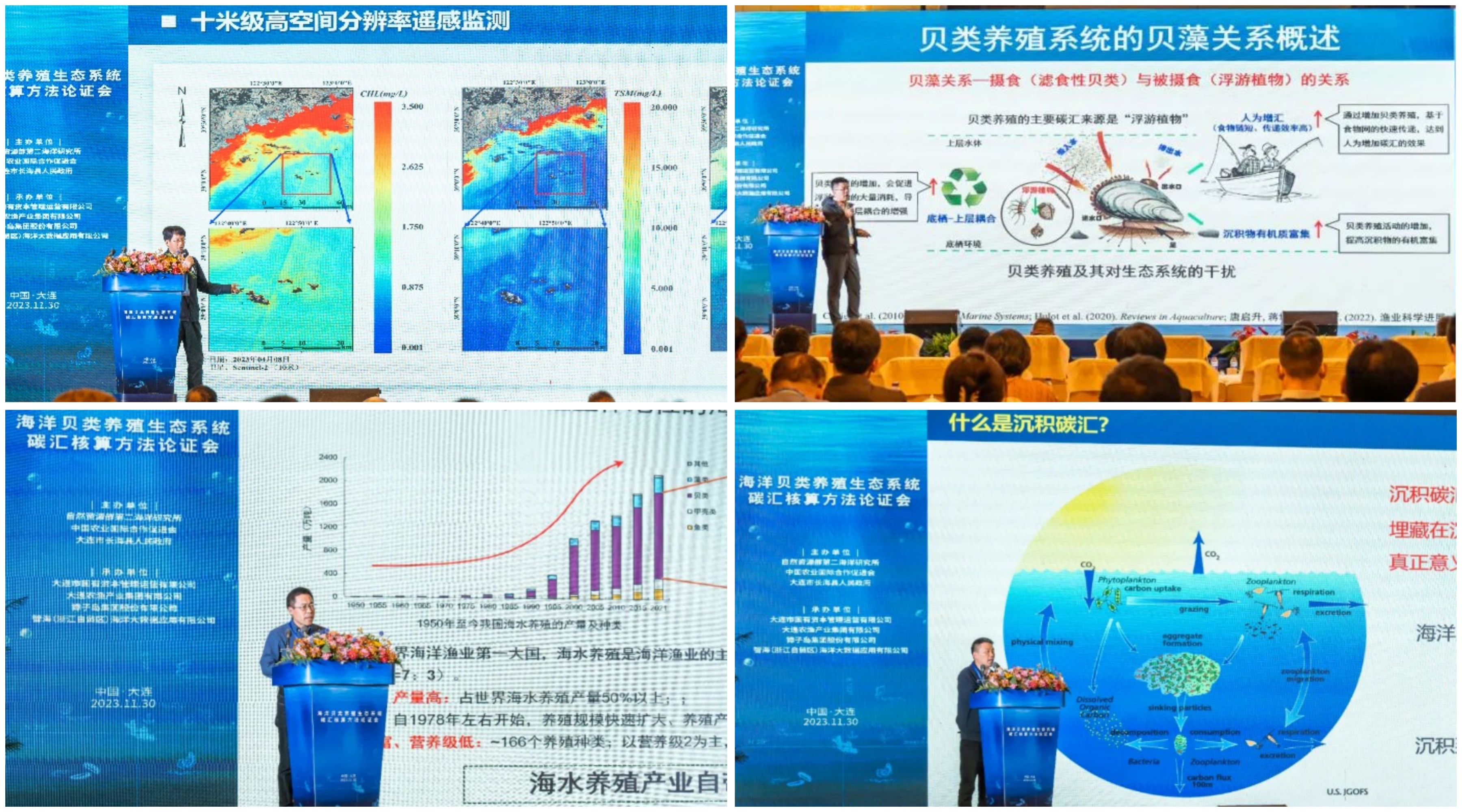



Recently, a demonstration meeting on the "Carbon sink accounting method for marine shellfish aquaculture ecosystems" with the goal of promoting the development of the marine shellfish and algae blue carbon industry was successfully held in Dalian City, Liaoning Province. Liu Dongli, the deputy mayor of Dalian City, attended the demonstration meeting and delivered a speech. This demonstration meeting was co-sponsored by the Second Ocean Research Institute of the Ministry of Natural Resources, the China Association for the Promotion of International Agricultural Cooperation, and the Dalian Changhai County People's Government. It brought together more than a hundred domestic authoritative experts, industry experts and local experts in the field of marine algae blue carbon. Relevant government figures conducted in-depth exchanges and discussions around the principles and accounting method framework of carbon sinks in marine shellfish aquaculture ecosystems, aiming to explore practical measurement and accounting methods for the sustainable development of the marine shellfish blue carbon industry in the future.
Academician Wu Fengchang of the Chinese Academy of Environmental Sciences, Academician Jiang Xingwei of the National Satellite Marine Application Center, Academician Pan Delu of the Second Institute of Oceanography of the Ministry of Natural Resources, Academician Zhang Si of the Southern Marine Science and Engineering Guangdong Laboratory (Guangzhou), Professor Bai Mindong of Tianjin University, China Geology Professor Sun Jun from the University (Wuhan) serves as an argument expert. Researcher Bai Yan from the Second Institute of Oceanography of the Ministry of Natural Resources presided over the demonstration meeting. Academician Pan Delu emphasized in his speech at the conference that all sectors of society are eager to pay attention to and have urgent needs for marine carbon sinks, especially the carbon sinks of mariculture ecosystems that are closely related to industry. The scientific community must strive to achieve "explain clearly, calculate clearly, and set an example.", so that we can produce standards and methodologies.
This demonstration meeting covered four special reports, including the carbon sink accounting method framework and three-dimensional monitoring, phytoplankton carbon sequestration efficiency, shellfish aquaculture ecosystem carbon sink function, and Zhangzidao shellfish aquaculture ecosystem sedimentation carbon sink measurement. Researcher He Xianqiang of the Second Institute of Oceanography of the Ministry of Natural Resources reported on "Carbon sink measurement and three-dimensional observation technology of marine aquaculture ecosystems", emphasizing that under scientific farming conditions, shellfish aquaculture activities have a beneficial effect on phytoplankton in accelerating carbon capture and can increase organic carbon deposition which has long-term carbon storage benefits. At the same time, the measurement, accounting content and observation methods are introduced based on the key interface carbon flux and carbon storage involved in the three-dimensional observation of the carbon sink in the marine aquaculture ecosystem, in order to improve the measurement and accounting accuracy. Associate researcher Song Shuqun of the Institute of Oceanography, Chinese Academy of Sciences reported on "Carbon Sequestration Efficiency of Phytoplankton in Farmed Shellfish Ecosystems", explaining that the feeding pressure and biological remineralization of shellfish farming can significantly increase the growth and carbon sequestration efficiency of phytoplankton. Cultivating different filter-feeding shellfish can improve phytoplankton carbon utilization to varying degrees. Researcher Jiang Zengjie of the Yellow Sea Fisheries Research Institute of the Chinese Academy of Fisheries Sciences focused on "Carbon sink function and potential assessment of filter-feeding shellfish aquaculture ecosystems" and explained the four carbon pools driven by shellfish physiological activities, pointing out the needs of marine shellfish aquaculture ecosystems which consider the whole rather than individual processes. And they pointed out that management based on aquaculture capacity is the fundamental prerequisite for fully utilizing the carbon sink effectiveness of shellfish aquaculture. Yu Peisong, a senior engineer from the Second Institute of Oceanography of the Ministry of Natural Resources, focused on the "Preliminary Calculation of Sedimentary Carbon Sinks in the Zhangzi Island Shellfish Culture Ecosystem". Based on the previous measurements of 20 sediment column samples in the Zhangzi Island ocean area, the annual burial flux and carbon sink of sediment organic carbon in the island's floating raft culture area and bottom sowing culture area were used to calculate the total carbon accumulation in the Zhangzidao shellfish culture area in the past 30 years.
After questioning and discussion, the demonstration expert group unanimously adopted the carbon sink accounting method for marine shellfish aquaculture ecosystems and formed expert opinions, clarifying that the marine filter-feeding shellfish aquaculture ecosystem has a carbon sink function. They also clarified that the phytoplankton should be used in aquaculture sea areas as the target. As the main carrier of carbon cycle, filter-feeding shellfish are the core concepts of carbon capture regulator. The expert group believes that the demonstration report starts from the integrity of the marine ecosystem, comprehensively considers the carbon sequestration, carbon storage and carbon sink processes of each link in the aquaculture process, and proposes a scientific framework for accounting for carbon sinks in marine filter-feeding shellfish aquaculture ecosystems. It is reasonable, advanced and practical, and has important guiding significance for the scientific accounting and trading of carbon sinks in typical marine aquaculture ecosystems.
It is reported that in the early stage, the China Association for the Promotion of International Agricultural Cooperation, in conjunction with the Second Institute of Oceanography of the Ministry of Natural Resources, the Guangdong Provincial Laboratory of Southern Marine Science and Engineering (Guangzhou), and Zhangzidao Group, the largest comprehensive marine fishery enterprise in China, summarized the past experiences of domestic experts and scholars. Based on more than 20 years of research results, a scientific research platform has been established on Zhangzidao, a typical area for shellfish farming in China, to cooperate in carbon sink accounting for marine shellfish farming ecosystems, including on-site surveys and sediment column sampling, experimental analysis, carbon sink measurement and other work, and achieved phased results. During the communication process with relevant scientific research institutes, opinions from many parties were absorbed to further improve the scientific rationality of the accounting principles and method framework.
The successful convening of this demonstration meeting provided important guiding opinions for the development of carbon sink accounting methodology for marine shellfish aquaculture ecosystems. The Second Institute of Oceanography of the Ministry of Natural Resources will join forces with the Southern Marine Science and Engineering Guangdong Provincial Laboratory (Guangzhou), the Yellow Sea Fisheries Research Institute of the Chinese Academy of Fishery Sciences, the Institute of Oceanography of the Chinese Academy of Sciences and other related scientific research institutes to further conduct in-depth research on algae cyanobacteria. Carbon accounting, formulating standards and methodologies, conducting demonstration applications, providing technical support for the development chain of marine carbon sink industries such as technology-industry-insurance-finance, etc., and providing strong support for the realization of the "double carbon" goal.



